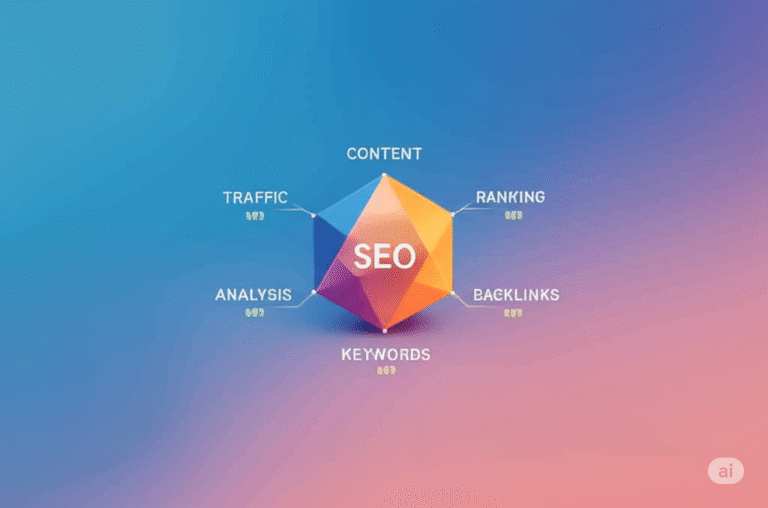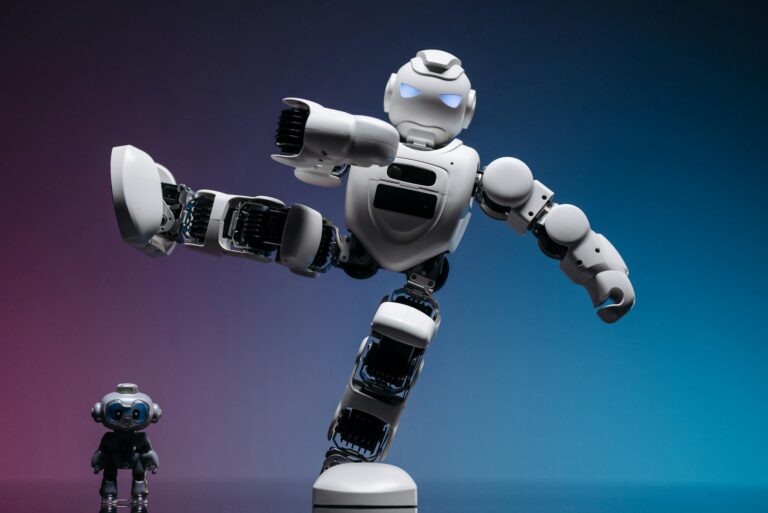What Is Agentic AI? The 2025 Beginner’s Guide For Entrepreneurs

Let’s get one thing straight. If you’re an entrepreneur in 2025 and you don’t understand agentic AI, you’re already behind. This isn’t some niche tech trend for Silicon Valley geeks. This is a fundamental shift in how business gets done.
Ignoring agentic AI is like ignoring the internet in 1999. It’s a business death sentence.
You’re busy. I get it. But you can’t afford to sleep on this. The entrepreneurs who adopt the power of autonomous AI agents today are the ones who will build the empires of tomorrow. This isn’t about hype… It’s a complete new form of leverage that will make or break your startup.
This guide is your wake-up call. It’s a no-BS breakdown for entrepreneurs who need to know what agentic AI is, why it matters, and how to use it to win. Pay attention.
What Is Agentic AI?
Forget the complex definitions. Here’s the simple truth: Agentic AI is AI that does things.
It’s a system built around AI agents—specialized programs designed to understand a goal, create a plan, and execute it in the real world with minimal human hand-holding. These autonomous AI agents are your new digital workforce. They don’t just answer questions; they complete tasks.
The agentic AI explained simply is this: It’s the shift from a passive tool to a proactive teammate. You give it an objective, and it figures out the how.
Why should you, an entrepreneur, care? Because agentic AI for business is the ultimate force multiplier. You are endowed with a highly regulated team of interns that are active 24/7, always learning. You can automate your business, freeing up your time to think, plan, and create. Understanding what are AI agents is the first step to deploying them.
Agentic AI vs. Generative AI: The Key Differences
This is where most people get tripped up. And do not be one of them. The difference is simple but profound.
Generative AI creates. You give it a prompt, and it generates text, images, or code. It’s a powerful content creation tool. It’s reactive.
Agentic AI acts. You give it a goal, and it executes a series of actions to achieve it. It uses generative AI as one of its many tools, but its purpose is task completion. Your automatic agent.
For Example:
- Generative AI is your copywriter. You ask it to write a blog post, and it delivers the text.
- Agentic AI is your marketing manager. You tell it to launch a new blog post campaign. The system uses generative AI to write the post, then logs into your website to publish it, creates social media posts to promote it, schedules them, and tracks the engagement.
Knowing the difference between agentic and generative AI is critical. One is a skill, the other is a workforce. The agentic vs reactive AI debate is over; proactive, goal-oriented AI is the future. This is a massive leap beyond traditional AI vs agentic AI.
How Do AI Agents Work? A Simple 4-Step Framework
You don’t need to be a coder to understand the logic. The agentic AI framework is a continuous loop that mimics how a smart person gets things done. Understanding how agentic AI works is about understanding this workflow.
As I already told you above, you don’t even need to write code to build your own agentic AI. Tools like n8n let you chain tasks together like dominoes. Think of it like Zapier on steroids—but with more power and freedom.
You just drag, drop, and connect steps that mimic human workflows: searching the web, sending emails, generating AI responses, saving data to Notion or Google Sheets… whatever your brain can imagine.
Other low-code tools like LangChain, AutoGen, or Microsoft’s Power Automate work too. Want your agent to run 24/7, talk to ChatGPT, and schedule your meetings? You can literally set that up in an afternoon. No computer science degree required.
The 4-Step Framework
- Perception: The AI agent (looks around and) gathers information. It might read emails, check a website (called an API), peek at your calendar, or study a spreadsheet. It’s trying to build context—basically, figure out what’s going on.
- Reasoning: Now the agent thinks: “What’s my goal?” Using the info it collected, it breaks the big goal into smaller steps—like a to-do list. This is the brain of the agentic AI framework—how it makes smart plans.
- Decision-Making: Then, it picks the best option from the plan. Should it send an email? Use a certain tool? Call an API? It decides the best move.
- Action: Finally, it gets to work. It might send the email, book a flight, update your tools (like a CRM), or even buy a stock. Then—it starts the whole process again! It checks what happened and figures out the next step.
This loop—Perceive → Reason → Decide → Act—is what makes autonomous AI agents so powerful. They don’t just follow boring instructions. Step by step they perform every (necessary) thing, learn, plan, and solve real problems.
Why Entrepreneurs Should Pay Attention in 2025
2025 is the year everything changes—and quietly. AI tools are no longer experimental; they’re business-ready. Entrepreneurs who lean in now can automate tasks like lead generation, email replies, customer service, and content creation using tools like ChatGPT, n8n, and Zapier—no coding required.
This isn’t hype, it’s a survival skill. The cost of ignoring AI will be invisible at first—slower responses, higher expenses, more burnout. But over time, the gap widens. Your competition will move faster, work less, and still make more. That’s the brutal truth. The winners of 2025 won’t be the smartest or richest. They’ll be the ones who paid attention early and built systems that scale without them.
So how do you know which parts of your business are ripe for this technology? Don’t just chase the hype. Apply this simple litmus test. A task is perfect for an AI agent if you can answer “yes” to most of these questions:
- Is the job repetitive and rule-driven? Think about things you do regularly, such as weekly reports, invoicing or onboarding clients. If there’s a recipe, it’s probably automatable.
- Does the task use many digital tools? If you’re bouncing between your email, a CRM, a spreadsheet, and a project management tool, then this is a great job for an agentic workflow. AI agents are great at jumping between tools quickly and smoothly.
- Is the goal clear and easy to measure? A goal like “make marketing better” is too fuzzy. But something like “find 50 new leads every week that fit our customer profile and add them to the CRM” is just right. Agentic AI works best when the target is sharp and specific.
- Does it take a lot of human time? If someone on your team spends more than 5 hours a week on the same task, that’s a red flag. Automating it will give you the biggest return on investment (ROI).
If a task in your business checks most of these boxes, congrats! You’ve found the perfect place to use agentic AI for startups and save serious time.
Real-World Use Cases of Agentic AI
We are not talking about science fiction. Smart startups are already deploying agentic AI examples to build lean, mean, efficient machines. Here are few examples:
- Automated Sales Development: An AI agent can take over the top of your sales funnel. Given a target customer profile, it can search LinkedIn for leads, find their contact information, use generative AI to write personalized outreach emails, send them, and even schedule meetings on your calendar when a lead responds positively.
- Hyper-Efficient Operations: An agentic AI may be put in place by a startup to control its inventory. The AI keeps track of sales and forecasts the demand, looks for the best supplier prices, decides when it is time to re-order products, and issues invoices which streamlines business operations efficiently.
- Proactive Customer Support: An AI agent could take the entire lifecycle of a support ticket from empathising with the customer, identifying the issue, searching for solutions, running through diagnostic scripts and wrapping the problem with a neat bow if a human behind a keyboard needs to be brought into the picture.
These agentic AI use cases show that this technology is a practical tool for gaining a competitive edge right now.
Top 5 Benefits of Agentic AI for Your Business
If you’re still not convinced, here are the cold, hard benefits of agentic AI. This is why agentic AI for business is a non-negotiable part of your future.
- Radical Efficiency: This is the most obvious benefit. Agentic AI automates entire workflows, not just single tasks. This crushes operational costs and dramatically increases your team’s output without increasing headcount. It’s about increasing operational efficiency by an order of magnitude.
- 24/7 Scalability: Your AI agents don’t sleep. Vacations? They don’t know about the vacations. Can handle 10 or 10,000 tasks. And yes, with ease and allowing your startup to scale rapidly without an operational bottleneck.
- Better Decision Making: They are intelligent. And process data points to observation trends like a piece of cake. Maybe there are some flaws but so far this is the future.
- Superior Customer Experience: An agentic AI has the potential of revolutionizing customer service by providing on-demand, intelligent, proactive assistance. It anticipates customer requirements and solutions problems before they happen and earns well above average customer loyalty.
- Super Human Potential: This is the big one. By assigning the grunt work to AI agents, you allow your people to prioritize creativity, strategy and relationships.
I only discuss five benefits here; there are hundreds of workflows you can create according to your business.
Best Agentic AI Tools for Entrepreneurs in 2025
The market for agentic AI tools is exploding. While specific platforms change, the categories are what you need to understand.
- Agentic Frameworks (for the tech-savvy): Platforms like LangChain and AutoGPT provide the building blocks for developers to create custom AI agents.
- No-Code Agent Builders: A new wave of platforms is emerging that allows you to build complex agentic workflows with a simple drag-and-drop interface. These are perfect for non-technical founders.
- Specialized AI Agents: You’ll see more and more “off-the-shelf” agents designed for specific functions, like an agentic AI in marketing that manages your ad campaigns or an agent that handles your bookkeeping.
The key is to start experimenting. Find a repetitive, process-heavy part of your business and see if you can apply one of these agentic AI tools to it.
What Are the limitations of agentic AI?
Let’s be real. This technology isn’t magic or your private genie. There are limitations of agentic AI you need to be aware of so you can navigate them intelligently.
- Complexity and “Hallucinations”: AI agents still make mistakes. Sometimes they even invent things that aren’t real (fake links). That’s why you can’t just “set it and forget it” when the task really matters. You need oversight. Otherwise, you’re asking for trouble.
- Cost: AI looks easy. But building custom agents? Still costs more (go and check the monthly price of N8N) No shortcuts yet.
- Security: This is serious. Giving an AI agent access to your company’s systems and data creates new security vulnerabilities. You need robust protocols to manage permissions and prevent misuse.
- Ethical Considerations: The ethical considerations of AI are huge. You are responsible for the actions of your AI agents. If your agent exhibits bias or causes harm, the buck stops with you.
Final Words
The future of agentic AI is heading in one clear direction: more autonomy, more integration, and more collaboration. We’re moving towards a future where companies are run by a hybrid workforce of humans and AI agents working together.
Expect to see multi-agent systems where different specialized agents collaborate to solve even more complex problems. Your marketing agent will talk to your sales agent, who will talk to your finance agent, creating a seamless, intelligent, and autonomous operational backbone for your entire business.
The entrepreneurs who start building with agentic AI today will be the leaders of this new paradigm. The ones who wait will be left wondering what happened. Don’t be one of them.
FAQs
What is the concept of agentic AI?
Agentic AI doesn’t wait for commands, it takes a goal and gets it done, start to finish. It thinks, plans, and acts without constant hand-holding.
What is the difference between Gen AI and agentic AI?
Gen AI creates content when you ask for it. Agentic AI uses Gen AI and other tools to complete full projects for you.
What is the difference between ChatGPT and agentic AI?
ChatGPT waits for you to say something smart. Agentic AI takes the hint once, and runs with it, often doing things you’d never think to ask.
What is the difference between agentic and non-agentic AI?
Non-agentic AI just sits there until you swing the hammer. Agentic AI grabs the blueprints and builds the whole damn shed.
Where is agentic AI being used?
People are using it to automate things like digital marketing, software testing, and deep research. It’s doing the behind-the-scenes work that quietly drives results.
What is the best agentic AI?
There’s no gold medalist here. The best one is the one that handles your chaos and gets things done while you sleep.






